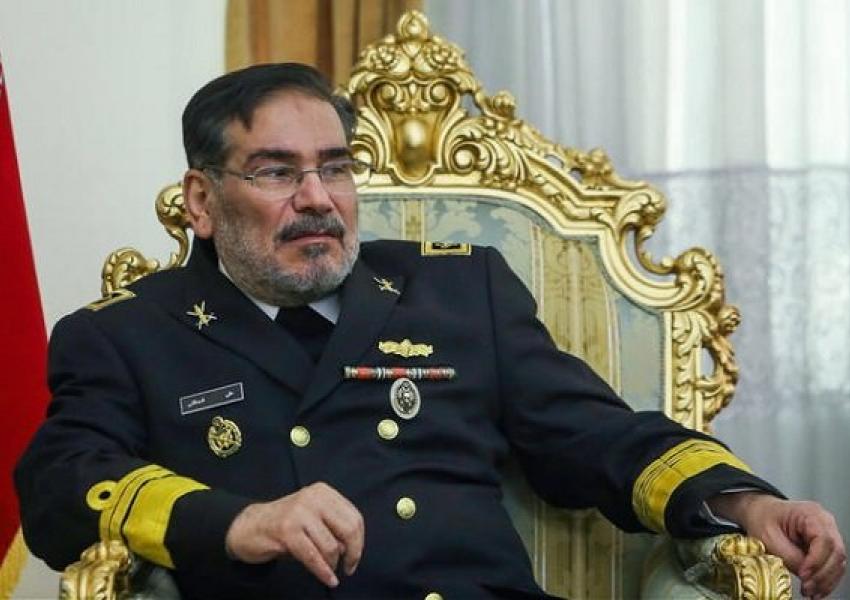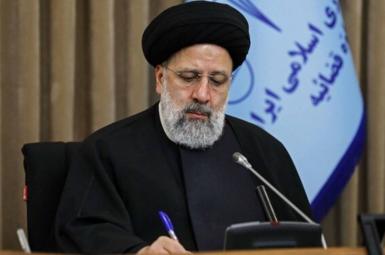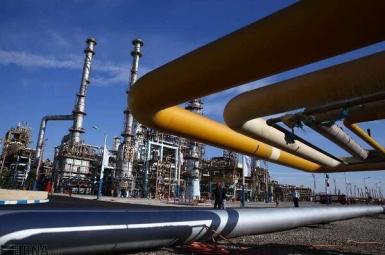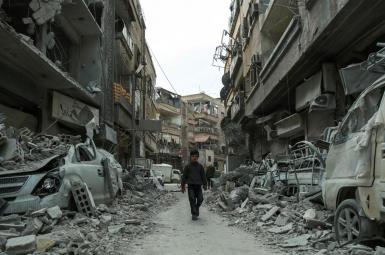
Iran Security Chief Criticizes Government Incompetence, Dependency On Petrodollars
Ali Shamkhani, a former Revolutionary Guard rear admiral who is Secretary of Supreme Council of National Security (SCNS) has accused successive Iranian governments of putting up a "show of competency" by spending petrodollars rather than trying to actually solve problems.
Shamkhani’s interview published by Iranian Students’ News Agency, ISNA on March 8 comes amid election rumblings as potential candidates gear up for public exposure before actual campaigning starts for the presidential vote in June.
As an example of incompetence, Shamkhani pointed at the government's decision to increase fuel prices in November 2019. He drew attention to criticisms about the way the plan was carried out and how its consequences were managed. The sudden price hike led to nationwide protests and the deaths of up to 1,500 people and over 8,000 arrests. The unrest, Shamkhani said, undermined the regime's authority, integrity and international reputation.
Shamkhani added that Iranian officials for 42 years had constantly been chanting slogans about ridding the country of oil dependence while doing little to establish a balanced economy.
This, coupled with factional infighting, has created a crisis in Iran, Shamkhani said, adding that Iran's development plans have always been disconnected from the country's potentials, requirements and priorities.
The interview with Shamkhani is one of a series of interviews ISNA is conducting with several politicians with varying political affiliations in a bid to examine the reasons of Iranian governments' incompetence during the past four decades.
Shamkhani said Iranian governments, particularly during the past 20 years, have operated inside a bubble, not knowing the requirements of modern times, including access to modern communication platforms. He said governments had often criticized state television for not reflecting their "achievements," while they have lacked a communication model.
Shamkhani argued that successive governments had measured competence by how much oil they could sell, while using the petrodollars to import necessities and consumer goods.
Asked if the reason why governments continue to depend on oil was their fear of popular protests, Shamkhani said that distancing oneself from an oil-based economy did not necessarily mean that protests would follow. The problem was that governments found that realizing $100 of income through exporting non-oil commodities was far more difficult than making the same $100 from oil sales.
He maintained that governments so far have chosen the easy way of selling the country's resources rather than opting for offering engineering services or selling agricultural products among other things. Shamkhani acknowledged that although some governments had considered reducing dependence on oil revenues, this had not turned into a sustainable policy.
Shamkhani said that presidential election candidates should be asked to explain their plans and policies to reduce the country's dependence on oil money. They should also say clearly whether they knew what the problems in the country were and what solutions they had.
Although in this interview Shamkhani accused various presidential administrations of chanting hollow slogans while ignoring the interests of future generations, his own views are nothing more than slogans. He is suggesting ideas to governments while he himself has always been a key member of the top ruling elite. He also failed to note that Iran’s political system is closed to those who do not agree with Supreme Leader Ali Khamenei.
Shamkhani offered no solutions for the problems he enumerated in his interview, just as he had not done as a presidential candidate in 2001. Nor has he offered any practical solutions for the country's problem during the past year when the media said he is a presidential candidate. In the meantime, he did deny his intention to run for President.
Meanwhile, Shamkhani claimed that the reason why plans in Iranian military are successfully implemented, is lack of factional infighting. He made the comment only one day after a military manager, General Saeed Mohammad resigned as head of the Revolutionary Guards’ Khatam ol-Anbia HQ probably because of factional infighting within the Iranian military forces.







